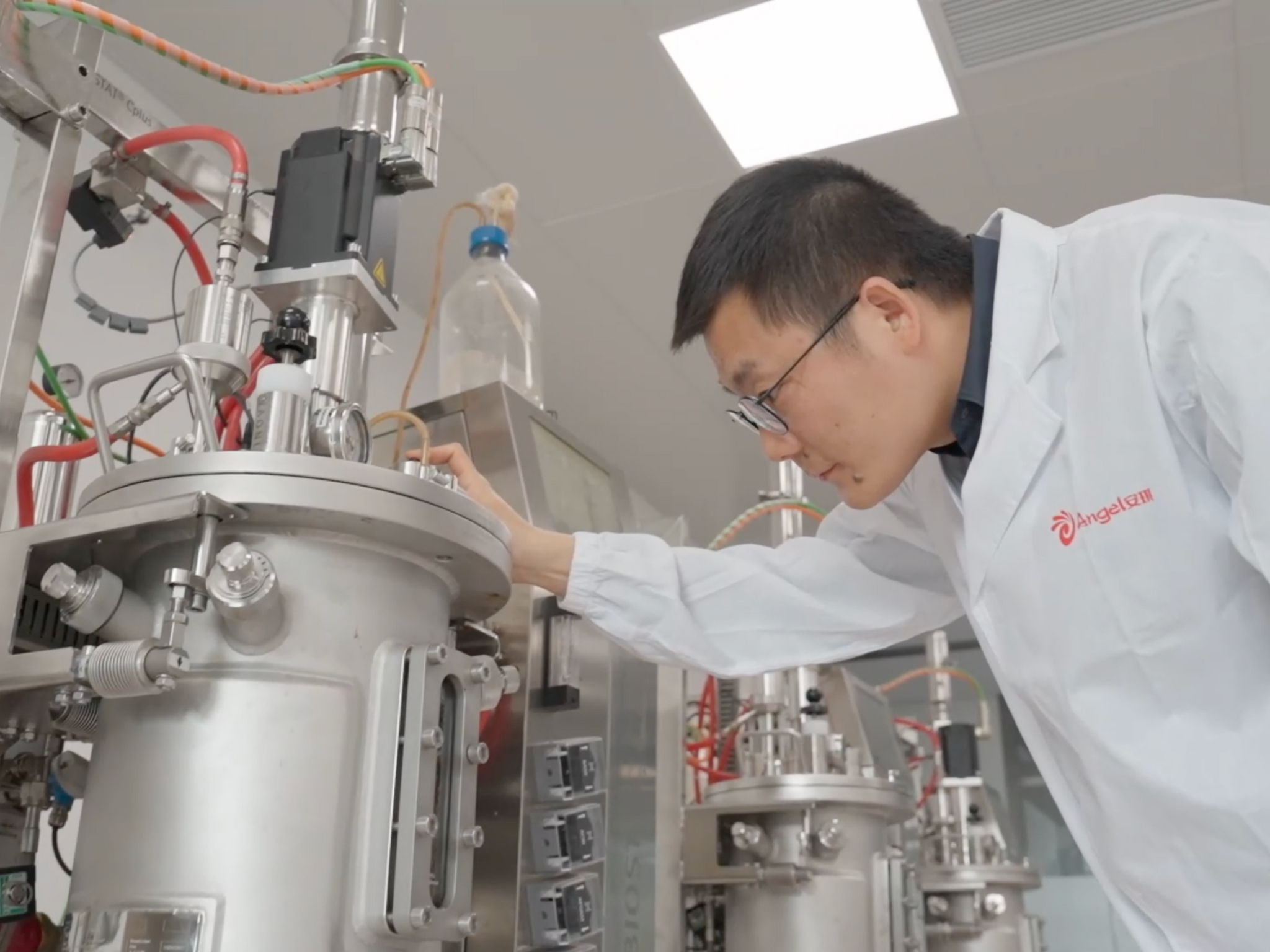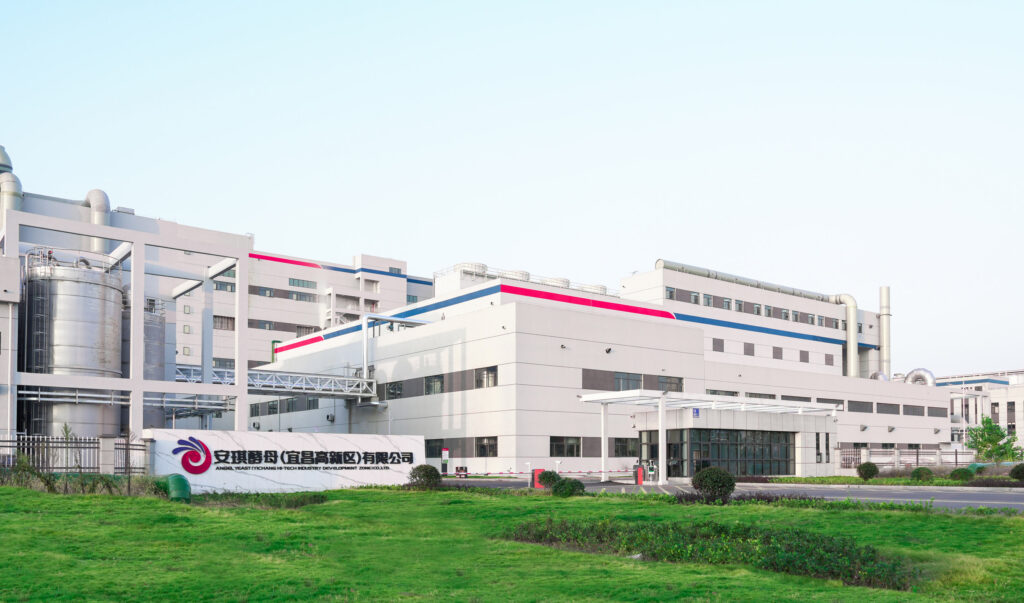
China’s Angel Yeast has begun operating an 11,000-tonne production line for its yeast protein, bolstering the country’s sustainable food leadership.
Already accounting for 15% of global yeast production and nearly 60% of the market in China, Angel Yeast is expanding its dominance as it kicks off industrial-scale manufacturing of its fermented protein.
The firm has started operations at its yeast protein facility at the Baiyang Biotechnology Park in Yichang, Hubei. It can currently produce 11,000 tonnes of high-purity protein annually, with built-in expansion capacity to meet future market growth.
“As global priorities continue to shift toward health, nutrition and sustainability, we see unprecedented market potential for yeast protein,” said Li Ku, general manager of Angel Yeast’s Protein Nutrition and Flavoring Technology Center.
“We will continue to accelerate production expansion to deliver more innovative, high-quality and dependable yeast protein solutions to customers and consumers worldwide and help drive a more sustainable future for the global food industry.”
Angel Yeast eyes sports nutrition and weight management markets

Angel Yeast uses fermentation to turn brewer’s yeast into AngeoPro, an ingredient with over 80% protein. It has all nine essential amino acids and a PDCAAS score of 1.0 (on par with animal proteins like whey and eggs), and boasts B vitamins, minerals, and 5g of fibre per 100g.
It supports muscle protein synthesis and recovery after exercise, and a recent study proved its efficacy to boost calcium absorption, improve bone health, and enhance gut health. It’s why AngeoPro is geared towards the weight management and sports nutrition markets.
Plus, it has “industry-leading purity” and a neutral flavour profile, which allows for direct consumption or blending whey, soy or other ingredients to create nutrition supplements, meat and dairy alternatives, protein bars and beverages, baked goods, snacks, and more.
Angel Yeast’s production process for the yeast protein significantly lowers land use, water consumption and greenhouse gas emissions in comparison to animal proteins.
“We are using high-density fermentation to reduce the use of water resources. We have also adopted a circular economy method in post-extraction to reduce water emissions, which can increase manufacturing efficiency and save energy consumption,” Yan Zhang, dean of Angel Yeast’s research institute, explained in a video on its website.
The new facility enables the automation of the entire process, from fermentation and autolysis to separation and drying. At the same time, it establishes an end-to-end production system encompassing raw materials, packaging and warehousing.
The entire manufacturing process occurs within controlled fermentation tanks, making it independent of weather or location and enabling year-round production. Angel Yeast stated that the development significantly enhances its global manufacturing footprint and extends its leadership in the sustainable protein market.
China builds its biotech dominance

The demand for yeast protein is expanding rapidly, thanks to its health and environmental advantages. This market is already worth $1.5B today, and is set to grow by 8.5% annually to reach $2.3B in 2030.
Several companies are innovating with brewer’s yeast proteins globally. In Switzerland, Yeastup raised $10M last year to repurpose a former dairy factory for its spent brewer’s yeast ingredients, while Germany’s ProteinDistillery broke ground on a large-scale plant for its yeast-derived Prew:tein ingredient. And Indian startup SuperYou, co-owned by Bollywood actor Ranveer Singh, launched a protein powder made from biofermented brewer’s yeast in August.
But Angel Yeast is one of the world’s leading yeast manufacturers, and its new facility signals China’s readiness to lead the future food ecosystem. Its 30-60 climate policy is aimed at hitting peak emissions by 2030 and becoming carbon-neutral by 2060, which will only happen if 60% of the country’s protein supply comes from alternative sources by the latter year.
The government has been pumping in resources to propel its biomanufacturing sector. Its bioeconomy development strategy aims to advance novel foods, and President Xi Jinping has called for a Grand Food Vision that includes plant-based and microbial protein sources.
This year, China saw its first alternative protein innovation centre open in Beijing, fuelled by an $11M investment from public and private investors to develop novel foods like fermentation-derived proteins. And in the Guangdong province, officials are planning to build a biomanufacturing hub for plant-based, microbial and cultivated proteins.
And at the annual Two Sessions summit, top government officials called for a deeper integration of strategic emerging industries like biomanufacturing, while a document signalling China’s top goals for the year underscored the importance of protein diversification, including efforts “to explore novel food resources”.
The country’s biotech capabilities have been recognised globally. Last year, the US national intelligence director’s annual threat assessment labelled China’s strategic advancements in “synthetic biology and agricultural biotechnology” as an attempt to “lead the broader biotechnological landscape”, prompting Congress members to call for strategic measures that solidify the US’s “resilience in this critical sector”.
The post Angel Yeast Opens Giant Fermented Protein Factory to Boost China’s Biomanufacturing Prowess appeared first on Green Queen.
This post was originally published on Green Queen.